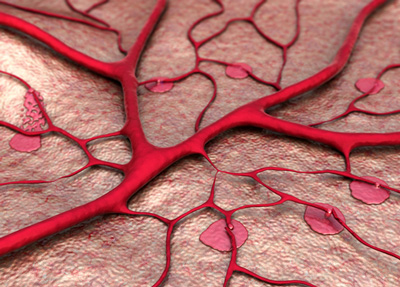Wars2 identified as a possible new target for heart disease drugs
Posted: 8 July 2016 | Victoria White, Digital Content Producer | No comments yet
Researchers were able to determine that Wars2 plays an important role in supplying sufficient endothelial cells for angiogenesis…


Researchers have discovered a new gene that controls blood vessel formation.
Their work presents a possible new drug target for cancer and heart disease.
Blood vessels form a network throughout the body to deliver the nutrients necessary to keep the tissues and organs alive and healthy. The formation of this network is controlled by a process called angiogenesis. Angiogenesis inhibition is commonly targeted in cancer treatments that aim to starve tumours of the nutrients necessary for their survival. In the heart, increasing angiogenesis can help heart pump function.
For the first time, a team led by Professor Stuart Cook at Duke-NUS Medical School (Duke-NUS), uncovered a role for the gene, Wars2, in the process of angiogenesis. Mr Mao Wang, PhD student at Duke-NUS, working alongside Dr Patrick Sips from Brigham and Women’s Hospital and Harvard Medical School, confirmed the importance of Wars2 for angiogenesis in rats and zebrafish.
“Using different genetic techniques, we inhibited Wars2 function in both rats and zebrafish, and the resulting animals showed impairment of blood vessel formation within the heart and in the rest of the body,” described Mr Wang.
Increasing the effects of Wars2
To confirm the involvement of Wars2 in angiogenesis, the researchers increased the effect of Wars2 and showed that blood vessel formation was enhanced. Specifically, they were able to determine that Wars2 plays an important role in supplying sufficient endothelial cells, the building blocks of blood vessels, for angiogenesis.
| This is a microscopic view to show blood vessel formation or angiogenesis at high resolution. Left: Normal blood vessel formation throughout the body during development of a zebrafish embryo. Right: Reduced blood vessel formation, indicating impaired angiogenesis, in a zebrafish embryo deficient in Wars2 where vessels are not able to grow normally. CREDIT: Wang M et al./ Nature Communications |
“Angiogenesis is vital for supporting life and providing nutrients to all parts of the body,” said Prof Cook. “Finding a way to control angiogenesis not only provides a target for the development of anti-cancer therapies, but may also prove useful in similarly starving abnormal blood vessel growth elsewhere in the body, like in diabetic eye disease.”
Ultimately, Wars2 provides researchers and pharmaceutical companies a fresh new target for developing treatments for diseases characterised by abnormal blood vessel growth that may be more effective and specific or complementary to what is currently available.
Related conditions
Heart disease
Related organisations
Duke-NUS Medical School (Duke-NUS)



